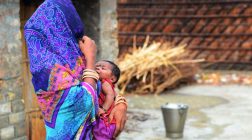Dr Ravindranath Led Global Hospitals Group To Make Foray in African Market
Within months of Metropolis Health of Mumbai setting up shop in Kenya’s capital, another Indian medicare provider is set to enter the East African market.
India’s Global Hospitals is partnering with Kenya’s upmarket Karen hospital in Nairobi to offer specialised urological and kidney care to the region’s patients.
The Indian doctors, who have pitched tent at the Kenyan hospital since some weeks, are offering consultations on subsidised rates. They are working closely with Kenyan doctors, giving advice and conducting tests on patients, many of whom cannot afford the high fees usually charged by Kenyan experts.
With a reputation for advanced knowledge and wide experience in treating complicated ‘lifestyle’ diseases such as those afflicting kidneys and the heart, the Indian doctors offer a rare opportunity for affordable quality treatment -and patients are flocking the hospital in their hundreds to take advantage.
Several African countries are seeking Indian investment in tertiary healthcare and supply of affordable medicines to its population. According to Hussain Ali Mwinyi, Tanzania’s health minister, the best way to increase abilities was by universal healthcare. ‘We require good healthcare for the middle class.’ He welcomed Indian investment in tertiary healthcare in his country, especially in the sector of telemedicine, which he said would help reduce healthcare costs.
India is running one such tele-medicine centre in Tanzania, Mwinyi said on Monday at the 9th India-Africa Conclave in which over 900 delegates from 45 African countries are participating. Citing similar needs, Mozambique Health Minister Alexander Manguele said: ‘We encourage Indian pharma companies to support improvement of the health of the people. ‘We encourage both public and private health sector participation in building health services,’ he said.
Manguele said only 40 percent of health requirements of his country were being met now. According to Ethiopian Health Minister Kebede Worku, African countries were facing increased burden of non-communicable diseases such as cancer, diabetes and hypertension. ‘We would like to invite investment from India for providing affordable medicine supplies,’ he said, adding Ethiopia was importing 75-80 percent of its medicines and 100 percent of medical equipment.
Naresh Trehan, chairman and managing director of Medanta-Medicity hospitals in Gurgaon, near Delhi, said: ‘India and Africa need to create a fusion of traditional and Western medicines. ‘We (India and Africa) are natural collaborators as we have the same challenges,’ he said. India, he said, was planning to train its 4.8 million-strong primary health workers team of Ashas or accredited social health workers to the next level of expertise over the next 10 years.
Global strategies Vice President Ranbaxy Ranjan Chakrabarty said Africa and India have the same broad similarities in health scenarios. ‘The pharma companies of India have made possible many African countries access medicine,’ he said.
Global Hospitals, which has been treating East Africans seeking relatively affordable healthcare in its facilities in Chennai and Mumbai, is taking advantage of the partnership to publicise its services in the whole region through advertisements in newspapers in Kenya, Uganda, Tanzania and Rwanda. These countries have a combined population of close to 150 million people.
As a result, patients have been coming in from all the four countries, now attracted by the convenience of not having to travel to India for consultations.
‘We want to take advantage of this partnership with Global Hospitals and see what we can jointly achieve in offering affordable but top quality medicare for kidney and urology patients,’ Betty Gikonyo, chief executive Karen hospital, told IANS.
According to the doctor, patients with unusually complicated cases will be treated at Global’s hospitals in India, while less complicated cases will be handled here at Karen hospital by experts from both health providers.
‘This is a good thing for us as it affords patients to be attended by some of the best experts in the world, while at the same time exposing our doctors to world class experience by working hand-in-hand with the Indian specialists,’ Gikonyo said.
Kenya, South Africa and Nigeria have the highest number of African patients visiting hospitals in India for heart, kidney and cancer-related care, drawn by its world class medical experts available at fees relatively cheaper compared to similar services in the western world.
The healthcare sector could be the next frontier for Indian companies keen on investing in Africa after manufacturing and telecom, if a recent trend is anything to by.
Two Indian medicare companies – Mumbai-based Metropolis Health Care (MHC) and Hyderabad-based Care Institute Medical Services (CIMS) – have recently made forays into the continent seen by many as virgin in terms of investment opportunities and with a huge potential to support a wide range of businesses.
While MHC has been in Africa since 2008 operating a number of diagnostic laboratories in South Africa, the firm last month moved to Kenya in east Africa opening two laboratories in the capital Nairobi, with plans to set up more.
The company has already spent $ 500,000 on the now operational Nairobi labs, with another US$5 million set aside for setting up another five in major towns in the country, according to CEO Ameera Shah.
The Kenyan labs will have capacity to conduct more than 4,500 pathological tests in both infectious and non-communicable diseases, both a growing menace on the continent.
Kenya, Shah told the media in Nairobi recently will act as an entry point to rest of east Africa a region with a combined population of more than 200million people, cutting patients the cost of travelling to India and South Africa for advanced medical tests, or having samples sent to the countries for analysis.
On the other hand, CIMS is planning to set up an out-patient unit in Nairobi in near future to cater to patients who have to travel to India to access top quality but affordable medicare services.
It is partnering with Kenyan investors and doctors to put the out-patient unit that will cater for a multiplicity of conditions, including those presented by changing lifestyles in Africa – mainly cancers and heart ailments.
The hospital has been running advertisements in the Kenyan media asking African travelling to India to visit their facilities for free medical check-ups or take patients for treatment, including cancer and various surgeries, at charges ranging from $195-$5,000.
The facility, boasting of world class specialists and facilities, however, has not indicated when it is opening the Nairobi out-patient centre, but with an increasingly high number of Africans having to travel to India for major medical operations the facility could be up by the end of the year.
India boasts some of the most advanced health care systems in the developing world with thousands of Africans traveling to the country for treatment each year, many of them seeking specialised help for kidney, heart and liver diseases, among others.
The country’s pharmaceutical industry also dominates drug imports by African governments and NGOs, thanks to quality but low cost medicines made by Indian companies.
Leading Indian pharmaceutical company Cipla is developing and testing a combination paedriatic HIV drug for children infected with the disease in a multi-million dollar enterprise and in partnership with the Swiss based NGO, Drugs for Neglected Tropical Diseases Initiative (DNDI).
Indian telecom major Bharti Airtel has stamped its presence in over 10 African countries, providing mobile communication services to over 100 million people.
Two Indian medicare companies Metropolis Health Care (MHC) and Care Institute Medical Services (CIMS) hospital have recently made forays into Kenya to tap into the health needs of the growing middle-class of a country that is the biggest economy in East Africa.
MHC has invested $500,000 on the now operational Nairobi laboratories, with another $5 million set aside for setting up another five labs in major towns in the country.
CIMS is planning to set up an out-patient unit in Nairobi in the near future to cater to patients who have to travel to India to access healthcare services there.











